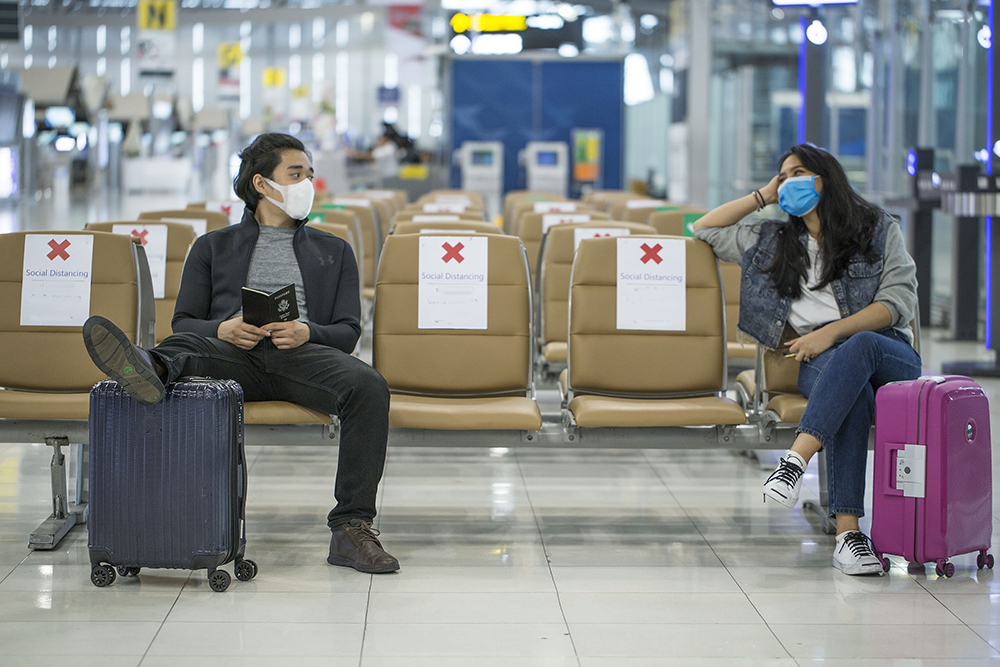

Columns/Blogs
Features
Health & Safety
What is COVID-19’s impact on business travel?
By Alexandra Georgescu
 (supAVADEE/Adobe Stock)
(supAVADEE/Adobe Stock) In March, business and non-business travel was in progress when the COVID-19 pandemic hit travellers and their employers.
Many questions ensued: What will happen if employees are hospitalized, quarantined, confirmed COVID-19 positive? Will they have medical insurance coverage? What will be covered?
Depending on the contract and the insurer covering these individuals, some questions remained rather complex.
Since that time, some insurers extended coverage to support travellers stranded abroad, some restricted coverage or terminated medical travel insurance entirely.
The changes in the market illustrated that business travel requires very specific risk-mitigation plans for employers.
Specialized market coverage
Specialized markets covering occupational travel and expatriates remain stable in reaction to the travel advisories.
These markets focus on covering high-risk travellers. They specialise in offering medical, evacuation and life insurance solutions in war, terrorism, natural disaster and even pandemic situations.
Coverage under these markets remains mostly unchanged and contracts are honoured as prior to the pandemic. While border closures and worldwide care availability is not under the control of the specialized insurance market, coverage and service are maintained.
Emergency medical coverage
Over the last few months, emergency medical coverage has become a high priority topic for employers.
Some insurers define COVID-19 as a known risk that does not qualify as an unforeseen emergency and thus exclude coverage for any COVID-19-related health needs while travelling.
Where business travel remains necessary, employers need support to confirm if appropriate coverage is in place or available in the market.
Below are some business travel medical insurance issues that the pandemic emphasized in recent months.
For each issue, employers can find solutions and secure proper coverage for their employees needing to travel for business.
Is the coverage in place?
When resuming business travel, the first item to note is that the specialized group insurance business travel market provides solutions for business travel insurance, including COVID-19 coverage. Costs have not increased in a significant way.
In sum, solutions are available.
COVID-19 exclusions
When an employer needs to resume business travel with COVID-19 exclusions in place on their policy, the first step is to open a dialog with the insurer and negotiate the inclusion of COVID-19 claims.
These exclusions may not only apply to the medical travel benefit but may extend to future medical coverage or disability coverage. Additional premiums may apply.
Exempt employees
What should employers do about employees who travel for business, but are covered by a spouse’s plan?
To ensure proper travel medical coverage is in place, particularly for business travel, some employers will include travel medical coverage for all employees, whether covered by the medical benefit or exempt.
This approach ensures control for the employer over the travel medical coverage in place — ensuring consistent and comprehensive coverage for all business travellers.
Maximum trip duration
Every travel insurance contract dictates a maximum out-of-country trip duration for coverage, typically from 30 to 180 days.
During the pandemic, travel durations became a significant topic of discussion. Any business travel now runs the risk of an extended quarantine, border closure and/or the incapability of returning home as planned.
When a contract limits trip duration, employers may consider extending this maximum duration by either negotiating with the insurer, or opting for a specialized group business travel insurance solution.
Company owned or leased aircrafts
Some employers requiring business travel as the pandemic set in also needed to organize private travel arrangements. (Privately owned or leased aircrafts are often excluded from insurance policies.)
These exclusions not only apply to the emergency medical travel coverage but may apply to other benefits, such as disability.
The use of a privately leased or owned aircraft therefore requires full contract review or the purchase of a specialized policy.
Coverage confirmation requirements
2020 has changed the way employers and their employees view business travel.
Travellers now demand travel medical coverage confirmations from employers prior to accepting a travel mandate.
Employers require support to accommodate this need and obtain reassurance for the company and the individual.
Insurers can provide coverage confirmation letters to satisfy coverage confirmation needs for employees, employers as well as any visas and permit requirement.
The “new normal” creates increased anxiety surrounding business travel both for employees and their employers.
While many organizations have put a total freeze on business travel, this is not endlessly sustainable and some travel remains essential.
It is therefore vital to have a broad understanding of what insurance coverage is in place and what the gaps may be.
 Alexandra Georgescu is vice-president for Health Solutions at Aon in Montreal.
Alexandra Georgescu is vice-president for Health Solutions at Aon in Montreal.
Print this page